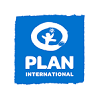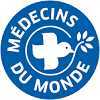INTRODUCTION
Plan International strives to advance children’s rights and equality for girls all over the world. As an independent development and humanitarian organization, we work alongside children, young people, our supporters, and partners to tackle the root causes of the challenges facing girls and all vulnerable children. We support children’s rights from birth until they reach adulthood and enable children to prepare for and respond to crises and adversity. We drive changes in practice and policy at local, national, and global levels using our reach, experience, and knowledge. For over 80 years, we have been building powerful partnerships for children, and we are active in over 75 countries.
Plan International Nigeria is part of the global federation of Plan International and was registered in Nigeria in 2014. Plan International has six Areas of Global Distinctiveness (AoGDs) which define our work, influencing priorities and partnerships. These are Inclusive Quality Education (IQE), Skills and Opportunities for Youth Employment and Entrepreneurship (SOYEE), Children, Adolescents, and Youth as Active Drivers of Change (LEAD), Sexual and Reproductive Health and Rights (SRHR), Early Childhood Development (ECD) and Protection from Violence (PfV).
PURPOSE OF THE CONSULTANCY
Purpose of the Evaluation
Evaluation Objectives:
I. To improve Learning for future intervention: It is intended that the outcomes of the final evaluation will provide useful and relevant information, explore why implemented actions and interventions are successful or not, and provide guidance on how to better implement subsequent similar work;
II. Accountability: The final evaluation will also be an accountability instrument for the project. Consequently, it will be used to assess whether project plans have been fulfilled and determine the extent to which the project’s resources have been used effectively and in an efficient manner.
III. Sustainability: The results of the evaluation will assist the Donor and PLAN in assessing the sustainability (or otherwise) of the activities, approaches, and structures initiated or supported by the project, and crucially, provide recommendations for future implementation.
IV: Collect end-line data for the outcome indicators to allow a comparison with the situation at the project start (baseline values).
Evaluation Criteria and Corresponding Questions
The final evaluation addresses the evaluation criteria of effectiveness, sustainability, relevance as well as impact and is meant to answer the following evaluation questions:
Effectiveness
- What were the achievements of the project against the baseline set at the project inception
- To what extent has the project achieved its intended results? Have there been any differential results across groups and if so, why?
- What were the direct contributions of the Beiersdorf project activities to each of these, and where and how have project activities created synergies and interactions with other project stakeholders?
Sustainability
- To what extent are the project results likely to be sustainable beyond the project’s lifetime (both at the community and government level) and which are the main supporting factors for this?
Impact
- To what extent has the intervention generated significant positive or negative, intended or unintended, higher-level effects, and to what extent has the project indirectly contributed to these?
- What are the immediate and long-term effects of the measures (especially IGA and VSLA components) to prevent and respond to the economic hardship
- What changes, if any, have you noticed in your community’s attitudes or behaviors as a result of this project?
Relevance
- What specific challenges or needs did the project address or fail to address within your community?
Identification of Lessons Learned
- What are the key lessons learned and good practices identified considering both the management and the programmatic aspects of the project?
- To what extent were MERL, existing lessons learned, and feedback data used to improve the implementation of the project?
KEY EXPECTED DELIVERABLES
Key Deliverables
- Inception report including:
- an updated timeline
- an evaluation matrix
- a detailed methodology including draft sampling methodology and size
- draft data collection tools
- ethical and safeguarding considerations and risk assessment
- consent forms for any primary data collection
- draft methods for data analysis and quality control
- brief justification of the methods and techniques envisaged (including relevant underlying values and assumptions/ theories) with a justification of the selection made.
- Final data collection tools
- Final Sampling methodology (including unit of sampling and sampling frame) and size
- Draft evaluation report, including cleaned data files (e.g. Excel, SPSS), transcripts of qualitative data syntax/ code books, etc. and completed consent forms (including for children and their caregivers and adults if any
- Final evaluation report including Executive Summary
QUALIFICATION/REQUIREMENTS
- The Tenderer must have a team with good interpersonal, communication, and negotiation skills.
- The Consulting Firm must have a team that displays excellent English, report writing, editing, and effective oral and written communication skills.
- The Tenderers team members must have the ability to work in an international and multicultural environment.
- The Tenderer team members must display sensitivity towards different cultures, local customs, religious beliefs and practices, personal interaction and gender roles, disability age, and ethnicity.
- The Tenderers team members must possess strong quantitative analysis skills with attention to detail.
- The Tenderers team members must have the ability to bring together diverse Stakeholders.
- The Tenderers must be registered and domiciled in Nigeria.
- The Tenderers must not have any competing interests or affiliations with Plan International Nigeria, including involvement in alternative operations.
- The Tenderer must have a fair knowledge of the financial procedures of the various donor funding.
- The Tenderer must have enough competent staff to carry out the assignment and complete it within the required period for statutory filing.
Expected Qualifications
- Post-graduate degree in Gender or Women Development Studies, Social Science, Public Health, and/or other related fields;
- At least 10 years of professional experience in conducting and managing project/program evaluations especially in Gender/SGBV and SRHR in developing countries.
- Substantive knowledge on gender equality and the empowerment of women and girls, SGBV, and other harmful practices, such as female genital mutilation, early, child and Early forced marriage, and issues surrounding masculinity, gender relationships, and sexuality.
- Strong technical knowledge and experience in SGBV and HTPs situations and trends, and a thorough understanding of the social, economic, and political context of Nigeria.
- Research skills with earned scientific paper publications in gender/SGBV, public health, and population/development.
- Ability to ensure ethics and integrity of the evaluation process, including confidentiality and prevention of harm to evaluation subjects.
- Ability to consistently integrate human rights and gender perspectives in all phases of the evaluation process.
- In-depth knowledge of theory-based evaluation approaches and ability to apply both qualitative and quantitative data collection methods
- Excellent management and leadership skills to coordinate and supervise the work of the evaluation team.
- Experience working with a multidisciplinary team of experts.
- Excellent ability to analyze and synthesize large volumes of data and information from diverse sources and formulate evidence-based conclusions and realistic and actionable recommendations.
- Excellent communication (written and spoken), facilitation, and knowledge-sharing skills.
- Work experience & good knowledge of the region and the national development context of Nigeria.
- Fluent in written and spoken English is desirable
About Plan International
Values of Plan International Nigeria
You confirm you are familiar with and committed to the following values of Plan International Nigeria:
We strive for lasting impact – We strive to achieve a significant and lasting impact on the lives of children and young people and to secure equality for girls. We challenge ourselves to be bold, courageous, focused, and innovative.
We work well together – We succeed by working effectively with others, inside and outside the organization, including our sponsors and donors. We actively support our colleagues, helping them to achieve their goals. We come together to create and implement solutions in our teams, across Plan International, with children, girls, young people, communities, and our partners.
We are inclusive and empowering – We respect all people, appreciate differences, and challenge inequality in our programs and our workplace. We support children, girls, and young people to increase their confidence and change their own lives. We empower our staff to give their best and develop their potential.
We are open and accountable – We create a climate of trust inside and outside the organization by being open, honest, and transparent. We hold ourselves and others to account for the decisions we make and for our impact on others while doing what we say we will do.
Ethics and Child Protection
Plan International Nigeria places a high premium on CHILD PROTECTION issues in all its working relationships with its partners and associates and mandates all its working partners and associates to adhere to its CHILD PROTECTION Policy.
As such, the activity must ensure appropriate, safe, non-discriminatory participation; a process of free and un-coerced consent and withdrawal; and confidentiality and anonymity of participants. Consultants are required to provide a statement within their proposal on how they will ensure ethics and child protection in the development process. This must also include consideration of any risks related to the activity and how these will be mitigated.
Disclosure of Information/Child Protection
It is understood and agreed that the Consultant(s) shall, during and after the effective period of the contract, treat as confidential and not divulge, unless authorized in writing by Plan, any information obtained in the course of the performance of the Contract. Informationwill be made available for the consultants on a need-to-know basis. Any necessary field visits must be budgeted for in your proposal. Plan staff under the coordination of the National Program Manager will support the consultant in facilitating all necessary engagements required by the Consultant. The selected consultant will commit to respecting Plan International’s Child Protection Policy to prevent any harm to participating children and youth.
Anti-Corruption
The Consultant and partners declare and guarantee that no offer, gift payment, consideration, or benefit of any kind, which constitutes an illegal or corrupt practice, has been or will be made to anyone by the Consultant either directly or indirectly, as an inducement or reward for the award or execution of this agreement.
The Firm declares and guarantees that neither they nor Partners or associates, temporary nor permanent, would be involved in the implementation of this agreement:
- Have been convicted during three (3) years before the submission of their proposals for this project, by a court of law in Nigeria or any other jurisdiction for an offense involving bribery or corruption.
- Are under sanction, for an offense involving bribery or corruption, imposed by a government, a governmental organization, or a development organization providing development assistance.
Anti-Terrorism
The Firm or Partners declare and guarantee that the funds provided by Plan International Nigeria for the service shall not be knowingly used to benefit terrorist groups as defined in the criminal code of Nigeria or individual members of those groups or for terrorist activities either directly or indirectly.
Whistle Blower Policy
Plan International Nigeria has a Code of Conduct including a Whistle Blower Policy (attached) and encourages its entire staff and associates to “whistle blow” (raise legitimate concerns about violation of the Code of Conduct without fear of recrimination in the course of their engagement with Plan International Nigeria).
All interested Firms/Individual Consultants are requested to submit their proposals via email to [email protected] no later than the 27th of December, 2024.
- Female-led companies are encouraged to apply




